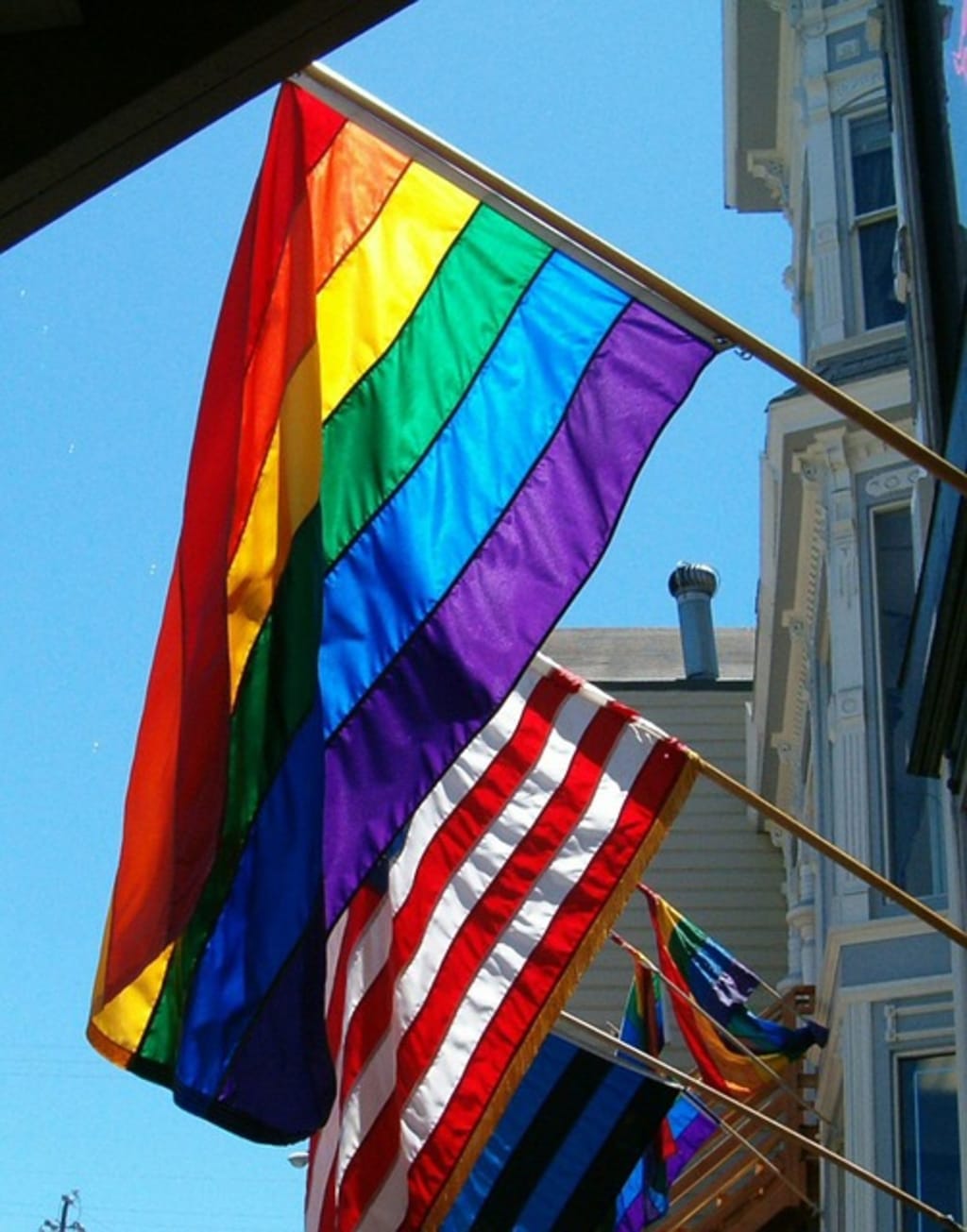The Politics of Being Queer: How the LGBTQ+ Community Swapped Protests for Parties
Political protests have largely been replaced with parties; protest banners have been swapped for glitter, and chants of protest for Britney Spears.

On June 28, 1970, the Christopher Street Liberation Parade marked the first anniversary of the Stonewall riots. The first 'Gay Pride March' encompassed the fifty-one blocks between the Stonewall Inn and Central Park. Politics and protest infiltrated to its core: this idea of queerness as something innately political continued for years afterwards.
In present day, millions of people line streets all over the world in celebration of annual Pride parades. 'Pride' is now a party: we, in being repeatedly told by society that we should be "grateful" for the rights bestowed upon us, have retreated into practicing rainbows and smiles, as opposed to arming ourselves with political banners and angry dispositions.
To be queer is, in itself, inherently political. To exist at all is inherently political. The individual lives of each and every human is defined and shaped by politics: To identify as LGBTQ+ complicates this even further.
The passing of same-sex marriage legislation in the UK in 2013: in the US in 2015, Ireland in 2016, and a myriad of other countries have facilitated the argument that we, as LGBTQ+ individuals, should be grateful for the rights bestowed upon us. Each and every right afforded to the LGBTQ+ community in the past fifty years is, and always will be, a right and not a privilege. It is not a privilege to be able to get married, nor is it a privilege to access healthcare or to rent or buy a house. Each and every of these so-called "privileges" are rights.
In 1981, Ken Horne received a diagnosis of Kaposi's sarcoma. Later scientific research termed this as HIV. The 1980s and 1990s was a devastating time period for the LGBTQ+ community, in which whole communities of gay and bisexual men deteriorated. The HIV/AIDS crisis remains a very pertinent memory in millions of queer minds; the LGBTQ+ community was forced to deal with the crisis of AIDS in alienation. The neo-liberal administrations in place under Margaret Thatcher in the UK and Ronald Reagan in the US systemically ignored the AIDS crisis. Those suffering were ridiculed, disrespected, and disregarded. AIDS activists took it into their own hands to research and test potential treatments: in the US, the FDA was chronically underfunded by the government in regards to HIV/AIDS research. AIDS was, and is, very much a political issue.
The implementation of Section 28 in 1988 accompanied the AIDS crisis. Gays and bisexuals were now not only being systematically deprived of access to healthcare, stigmatised by wider society, and insulted by the inadequacy of scientific research, but they were now legislated against, as were the rest of the LGBTQ+ community. Local authorities were thus indoctrinated into a fiercely homophobic campaign against the queer community: local authorities were not to "intentionally promote homosexuality". Schools were not to "promote the teaching of the acceptability of homosexuality as a pretended family relationship". For twenty-five years, millions of LGBTQ+ children were denied access to much-needed material: material which could have served as validation, encouragement and acceptance. The LGBTQ+ community were wiped from classrooms; libraries, and newspapers. Our existence was erased with the simple passing of a law.
And yet, something to acknowledge is that the mistreatment of LGBTQ+ individuals by political administrations is not something historical. It is still very much happening. The Trump premiership has already proven itself to be transphobic, with the ability of transgender individuals to access healthcare deeply under threat. In the UK, misconceptions about trans issues permeate the healthcare system; the result is that thousands are reduced to treatment which is poorly executed. If this isn't political, I don't know what is.
The political issues which affect us each day because we are queer should be central to the LGBTQ+ agenda. Stonewall notes that a quarter of trans people have experienced homelessness; when accessing healthcare services, two in five trans people have said that healthcare staff lacked understanding of trans health needs, and one in four were discriminated against in 2017 when looking to rent or buy properties. Each of these statistics clearly demonstrates that to be queer is innately political. And yet, this argument is increasingly isolated and forgotten. Political protests have largely been replaced with parties; protest banners have been swapped for glitter, and chants of protest for Britney Spears.
As a queer woman, I am grateful for each and every LGBTQ+ bar in existence. As a queer woman, I am eternally grateful for the community who came before me, for the community who fought so that I might live a freer life than they did. As a queer woman, I am concerned with politics to my core. I fight for LGBTQ+ rights because I am political, and because I am queer. As a queer woman, I am empowered and I am liberated. I owe it to every queer woman who came before me.
About the Creator
Eleanor Noyce
Intersectional feminist; unapologetic socialist, and campaigner for LGBTQ+ rights. Writer and Print Editor at The Gryphon Views. Words in The Gryphon, Lippy magazine and ShoutOut UK. Content creator for Vocal Media.






Comments
There are no comments for this story
Be the first to respond and start the conversation.